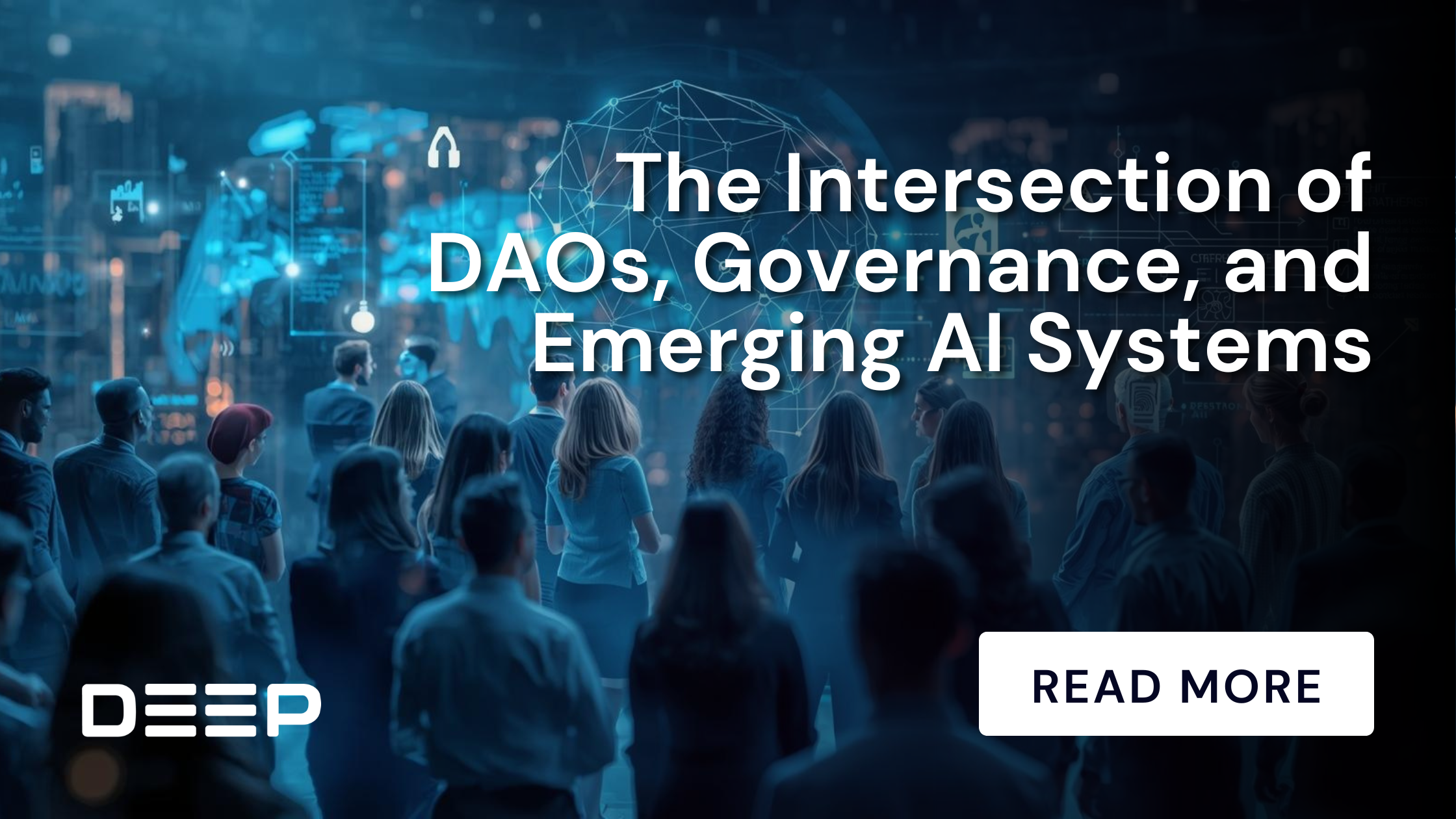The Intersection of DAOs, Governance, and Emerging AI Systems

DEEP connects bold ideas to real-world change and builds a better future together.
Coming Soon Funding
Funding
An ecosystem for innovators to secure grants and resources to bring bold ideas to life.
 Communities
Communities
A collaborative space where builders, researchers, and supporters connect.
 Lab
Lab
The experimental arm of Deep, where new products, technologies, and methods are incubated.
 Ideation Coming Soon
Ideation Coming Soon
Discover, share, and shape groundbreaking ideas with a community that values your voice.
 Initiatives
Initiatives
DEEP connects bold ideas to real-world change and builds a better future together.
Coming Soon
On August 29, 2025, the Deep Funding community hosted an X Space exploring one of the most urgent questions of our time:
How do decentralized autonomous organizations (DAOs), governance, and emerging AI systems intersect and how can we ensure these systems amplify human agency rather than diminish it?
The session was hosted by Mariam Ekpere from the Deep Funding Event Circle and featured Haley Lowy, Alignment & Coordination Officer at SingularityNET and co-lead at BGI Nexus. The conversation brought together theory, practice, and community perspectives, offering a glimpse into what the future of decentralized coordination may look like.
Before diving into the conversation, it’s helpful to understand what Decentralized Autonomous Organizations (DAOs) are.
DAOs are community-led organizations that operate without centralized leadership. Instead of decisions being made by executives or managers, DAOs use blockchain-based smart contracts and collective voting mechanisms to coordinate action.
In short, DAOs provide a new way for people to coordinate, fund, and govern projects together, without relying on traditional hierarchical systems.
Mariam opened the session with a reminder of the historic moment we are living through:
“We are seeing DAOs promise new forms of human coordination, while AI systems are rapidly approaching human-level capabilities. The question is not whether they intersect, it’s how we shape that intersection to create the conditions for flourishing rather than dysfunction, ensuring these systems empower human agency instead of undermining it”
This framed the discussion around agency, inclusivity, and governance design which are all central to the Deep Funding mission.
Haley points out that DAOs are more than “smart contracts.” They represent a new kind of human coordination, one that gains unprecedented potential when combined with AI:
Reputation systems are at the heart of DAOs, but Haley warned they can either empower communities or replicate inequalities:
As Haley put it:
“Reputation is not just about ranking people, it should be a shared memory of contributions that encourages growth and creativity.”
One of the most compelling questions of the session: Where do we draw the line between tool and member?
Token-based voting is common but flawed, often concentrating power. Alternatives discussed included:
These approaches point toward wisdom-driven and inclusive governance, not just wealth-based governance.
Scaling DAOs beyond small groups has always been hard. AI offers practical solutions:
As Haley put it:
“AI becomes both glue and grease, it holds the organization together to a shared vision, and helps it function smoothly with less friction.”
The Q&A segment spotlighted real concerns from the community:
These exchanges grounded the theory in the real challenges DAOs face today, showing how design choices affect fairness and inclusivity.
Deep Funding’s mission is to empower communities to fund and govern the future of decentralized AI.
This conversation directly advanced that mission by:
As Mariam closed the session:
“The future of DAOs is not just about building better organizations, it’s about proving that artificial societies can empower rather than dominate. That’s work worth doing together.”
This conversation is just the beginning. As technology evolves, so will the questions around governance, participation, and collective intelligence.
Copyright 2025 © Theme Created By DeepFunding, All Rights Reserved.